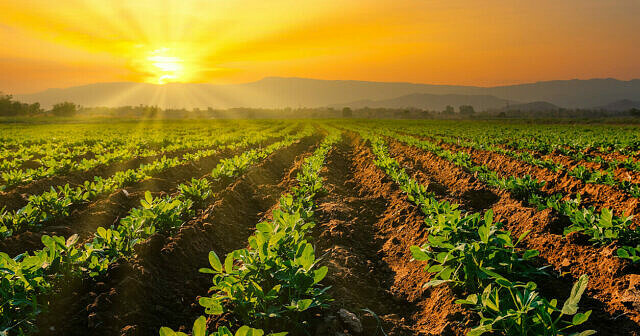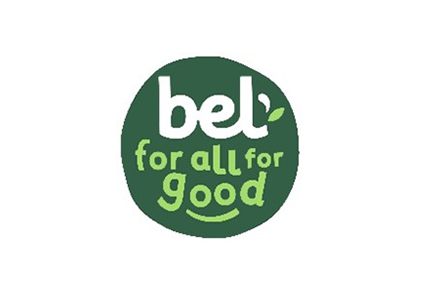World’s first FSA verification for cinnamon: McCormick & Company tell us how
6th May 2021

“Utilising a globally recognised and third-party verified programme provides credibility to our initiatives and offers a platform for communicating our sustainability achievements to customers and consumers.”
The Kerinci district, on the island of Sumatra in Indonesia is where over 80% of the world’s cinnamon is grown. Typically farmed by smallholders in what are known as “cinnamon gardens”, the trees can take up to 20 years to grow and have a labour-intensive harvesting process.
In 2020, and despite challenging COVID-19 restrictions, SAI Platform member McCormick & Company, a global leader in flavour, announced the world’s first FSA cinnamon verification among these very cinnamon gardens in Indonesia.
To hear more about this incredible achievement, SAI Platform caught up with Emma Gladstone, Sustainability Manager for McCormick, and Stuart Higgins, Director from Collins Higgins Consulting.
Congratulations Emma with your achievement. Can you tell us how it fits into McCormick’s sustainable sourcing strategy, and what role the FSA plays in it?
Thank you! In 2017, McCormick published the first Purpose-Led Performance (PLP) report outlining ambitious targets for 2025. These included the goal to sustainably source 100% of our top five branded iconic ingredients (black pepper, cinnamon, oregano, red pepper and vanilla). Indonesia is an important origin for cinnamon, and therefore, to achieve our goal it was vital that we implemented sustainability initiatives in the region. We worked closely with local partners to understand which programme would suit our supply chain and the farmers from which we source, and the FSA was the best fit.
From McCormick’s standpoint, utilising a globally recognised and third-party verified programme provides credibility to our initiatives and offers a platform for communicating our sustainability achievements to customers and consumers.
It is known that cinnamon can be a challenging supply chain to work with when it comes to making sustainability improvements. How was your experience with this?
Cinnamon trees take up to 20 years to reach full maturity and are rarely a farmer’s primary source of income. Traditionally, farmers would harvest cinnamon trees only when they required additional income, for example, for a special occasion such as a wedding. The supply is therefore very fragmented, and the raw material passes through a number of intermediaries before being exported.
The first challenge for us was to develop a more direct relationship with farmers that would ensure a long-term commercial relationship based on a shared sustainability commitment. Sustainability improvements could only be implemented once traceability back to farms, or as they are often called, cinnamon gardens, was established.
You brought in various partners to support you on this journey. How did you come to this decision and how important have they been?
In any sustainability project, having a trusted, experienced field team is essential for success. We had previously commissioned Collins Higgins Consulting (CHC) to conduct cinnamon research in Indonesia and their team’s in-country experience and expertise gave us the confidence to partner with them on our farm-level sustainability initiatives.
In addition, we are always looking for ways to upscale our projects to deliver increased impact. Our ambitions closely aligned with those of the Indonesian Spices Trade Alliance (ISTA) project, funded by the U.S. Department of Agriculture (USDA), with whom we partnered to co-fund a four-year initiative for cinnamon and other supply chains in Indonesia. The implementation partner for the project was NCBA CLUSA, with whom we have a long-standing relationship in both Indonesia and Madagascar.
Ultimately, without these partnerships we wouldn’t have been able to roll out sustainability initiatives as widely and effectively as we have done to date and continue to do in 2021 and beyond.
Implementing the FSA with a new crop and getting it verified in a new country is a big challenge any year, but 2020 was not just any year. How did COVID-19 add to the challenge?
We can’t deny that 2020 held unique challenges due to the pandemic. With international travel restrictions in place, the McCormick team was unable to physically meet with stakeholders. However, thanks to the in-country partners we referred to previously, this had relatively little impact and project meetings were conducted virtually. More challenging were the internal travel restrictions and need for key members of the field team to quarantine upon arriving in the region. A strategic decision was therefore made to pilot the initiative with a small group of farmers and traders, which made one-to-one training and adherence to strict health and safety procedures, such as social distancing, easier.
The biggest challenge, however, was in securing an auditor. Since this was the first FSA verification to be completed in Indonesia, none of the local auditors were qualified to conduct the audit and it was not possible for an auditor to travel from another country due to the restrictions. McCormick has worked closely with Control Union over a number of years, and they stepped up and put several of their team through the training, liaising with CHC to audit the group with a limited delay. Fortunately, we had a group of engaged farmers and suppliers who were committed to achieving the sustainability standard, and a skilled team at CHC who knew what was required to achieve the outcome we did.

What does this achievement mean to you and what was the role of your organisation in it?
We’re pleased and proud of the fact we have played an important role in McCormick achieving the first FSA verified cinnamon in the world. Our role was to establish the administrative system that underpins the Farm Management Group that was verified to the FSA. We assisted each farmer, reviewed their farm against the standards and provided training and support to each farmer to improve any of their operations where gaps existed. We also co-ordinated with Control Union to conduct the audit, which involved assessing both the farmers and our system.
Can you tell us some more about the Farm Management Group that you led?
The members of our first FMG (01) were 10 established cinnamon farmers and suppliers in the Kerinci district. They registered a total of 25 cinnamon gardens (450ha) under the FSA initiative. This small group was targeted to champion the adoption of FSA because, in our experience, farmers learn best from other farmers. The next Farm Management Group to be audited for the FSA in April 2021 (FMG 02) comprises of six medium scale suppliers/ lead farmers closely linked to 78 smallholder farmers, managing 116 gardens with a total area of 480ha.
Your ‘typical’ cinnamon farm or ‘garden’ is the equivalent of an ‘infield savings account’ for smallholder farmers. Taking up to 20 years to grow, cinnamon is managed more intensively for the first 1-2 years during the establishment phase. It’s then left to grow largely unattended in the mountainous regions of Sumatra, before the labour-intensive harvest process of debarking, drying, sorting and grading takes place. Farmers can either conduct all these activities themselves or sell the ‘standing stocks’ to suppliers to complete the harvesting.
How did you support the farmers in understanding and using the FSA?
This has been quite an intensive activity for our field co-ordinators, who provide support to the farmers across a range of areas. Once a farmer signs on to the FSA programme, the field co-ordinators map the cinnamon garden (GPS points) and conduct an initial self-assessment with the farmer to identify gaps in their system to the FSA standard. Action plans are prepared for each farmer to address their gaps, including a timeframe. CHC sustainability staff then assist the farmers in implementing specific actions, sometimes with one-on-one advice or group training (e.g. workplace safety). The most recurrent gaps were in the documentation of policies and paperwork, so we ran small training groups to upskill and educate the farmers on various elements of the standard, and what this means for their operation. And finally, before the audit was conducted, the field team completed pre-assessments to confirm that changes in practice were adopted, and to ensure each farmer was ready for the audit.
Post verification, CHC now actively monitors the supply volume of cinnamon from each verified farm to ensure only raw cinnamon harvested from that farm is tagged as FSA verified.
What have been your biggest learning experiences from this project?
Market pull is the key to a successful sustainability initiative. When a buyer such as McCormick requests FSA cinnamon from the market, and then invests in providing initial support to the farmers and suppliers, they have the incentive and confidence to introduce real and long-lasting practice change.


